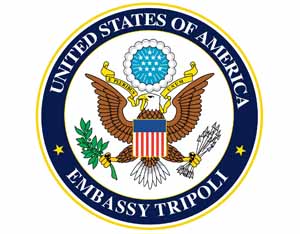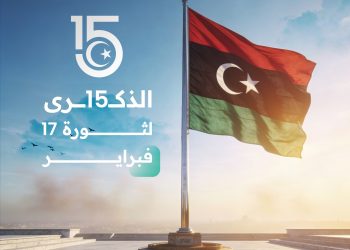By Sami Zaptia.
London, 5 August 2020:
The White House yesterday called for a demilitarized solution at Libya’s Sirte-Jufra de facto ceasefire line and an immediate reopening of its oil sector. The call came in a statement on Libya from U.S. National Security Adviser Robert C. O’Brien.
O’Brien said ‘‘The United States is deeply troubled by the escalating conflict in Libya. We strongly oppose foreign military involvement, including the use of mercenaries and private military contractors, by all sides.
The ongoing efforts of foreign powers to exploit the conflict – for example, by establishing an enduring military presence or exerting control over resources that belong to the Libyan people – pose grave threats to regional stability and global commerce. Furthermore, these efforts undermine the collective security interests of the United States and our allies and partners in the Mediterranean region. Escalation will only deepen and prolong the conflict’’.
O’Brien revealed that ‘‘Over the past weeks, President Trump has spoken with several world leaders about Libya, and it is clear there is no “winning” side. Libyans can win only if they come together to reclaim their sovereignty and rebuild a unified country.
As an active, but neutral, actor, the United States is pursuing a 360 degree diplomatic engagement with Libyan and external stakeholders across the conflict to find a solution that supports Libyan sovereignty and protects the shared interests of the United States, our allies, and partners.
To that end, we call on all parties – both those responsible for the current escalation and those working to end it – to enable the National Oil Corporation to resume its vital work, with full transparency, and to implement a demilitarized solution for Sirte and al-Jufra, respect the UN arms embargo, and finalize a ceasefire under the UN-led 5+5 military talks’’.
Analysis
The White House statement continues the recent trend in increased U.S statements on Libya. It indicates an increased U.S. interest in the Libyan crisis – albeit thanks to Russian/Wagner intervention in the country.
The statement officially confirms recent leaks that the U.S has been pushing for the demilitarized zone option around the de facto Sirte-Jufra ceasefire line. It confirms that both sides in the conflict are unwilling to yield by withdrawing from the ceasefire line nor de-escalating and reducing military build-up.
Indeed, all reports indicate that both sides had continued to build up military armour in preparation for an offensive – or in a dangerous game of brinkmanship. The military build up could also be seen as a signal by both sides to the other side and the strengthening of bargaining positions.
The statement perhaps adds credence to the widely held view by analysts that Tripoli, and its ally Turkey, have been waiting for a ”green light” from Washington to attack across this de facto ceasefire line. It may also add credence to the view that Turkey intervened strongly in Libya after tacit or explicit strong U.S. support – in order to negate Russia/Wagner’s intervention in Hafter’s war on Tripoli.
The statement can, therefore, be read as a clear signal by the White House that it does not want continued escalation in Libya and does not want either side to launch an attack across the current de facto ceasefire line.
The White House statement continued to link the idea of or even the guarantee of a ceasefire and a demilitarized zone – with the reopening of Libya’s oil sector. The reopening of Libya’s oil production and exports seems to be the quid pro quo. It is still unclear how or who will monitor and enforce the ceasefire and demilitarized zone.
The statement insists the resumption of oil production must be ‘‘with full transparency’’. This can be read as support for the recently agreed independent international audit of Libya’s two competing Central Banks. It is also a nod to purported eastern Libya grievances that Libyan oil revenues are not distributed equitably or are being misappropriated.
The statement also signals that the White House nominates the finalization of a proposed ceasefire through the existing UN-led 5+5 Libya military talks mechanism. This may signal the preclusion of other possible avenues. The 5+5 military track is one of the three ongoing UN-led Libya talks, including political and economic talks.
Equally, the revelation, confirmation and highlighting by the statement that ‘‘Over the past weeks, President Trump has spoken with several world leaders about Libya, and it is clear there is no “winning” side. Libyans can win only if they come together to reclaim their sovereignty and rebuild a unified country’’ is a signal that maybe the White House and its State Department are now finally in sync with regards to Libya policy.
It maybe a signal that those hoping and waiting to exploit previous undoubted divergences between the two, or sides wishing to leak favourable or conflicting interpretations of phone calls with Trump – that that particular avenue is now closed.
The statement also reiterated the U.S. interpretation of its role and policy on Libya as one of being ‘‘an active, but neutral, actor’’. It signals its neutrality between the internationally recognized Faiez Serraj administration in Tripoli and the alternative eastern Libyan side by announcing clearly that it is ‘‘pursuing a 360-degree diplomatic engagement with Libyan and external stakeholders across the conflict’’.
This reiterates previous U.S. statements that signal that the U.S does not support Hafter’s drive to gain power in Libya through military force. This may fly in the eye of views that the U.S is, or was, supporting the UAE and Egypt in their quest to install the anti ‘‘Islamist’’ candidate, Khalifa Hafter, in power in Tripoli.
This, at-equal-arms-length, neutrality by the U.S. will be a disappointment to the Serraj administration as it saw and projected itself as the defender in the war on Tripoli, whereas Hafter was the military aggressor. Equally, it has felt aggrieved that it has been treated on an equal footing to Hafter in international negotiations – despite the fact that as a government, it is the only internationally recognized Libyan government. Serraj’s government is also enshrined in international law through UN Security Council Resolutions.
Finally, already there has been some concern expressed about the idea of the establishment of a Libyan demilitarized zone, raising fears of an enduring zone along the lines of the decades-old Korean DMZ.
https://www.libyaherald.com/2020/07/30/following-his-earlier-visit-to-misrata-u-s-charge-daffaires-harris-visits-benghazi-report-and-analysis/
https://www.libyaherald.com/2020/07/28/u-s-seeking-to-forestall-libyan-military-escalation/







